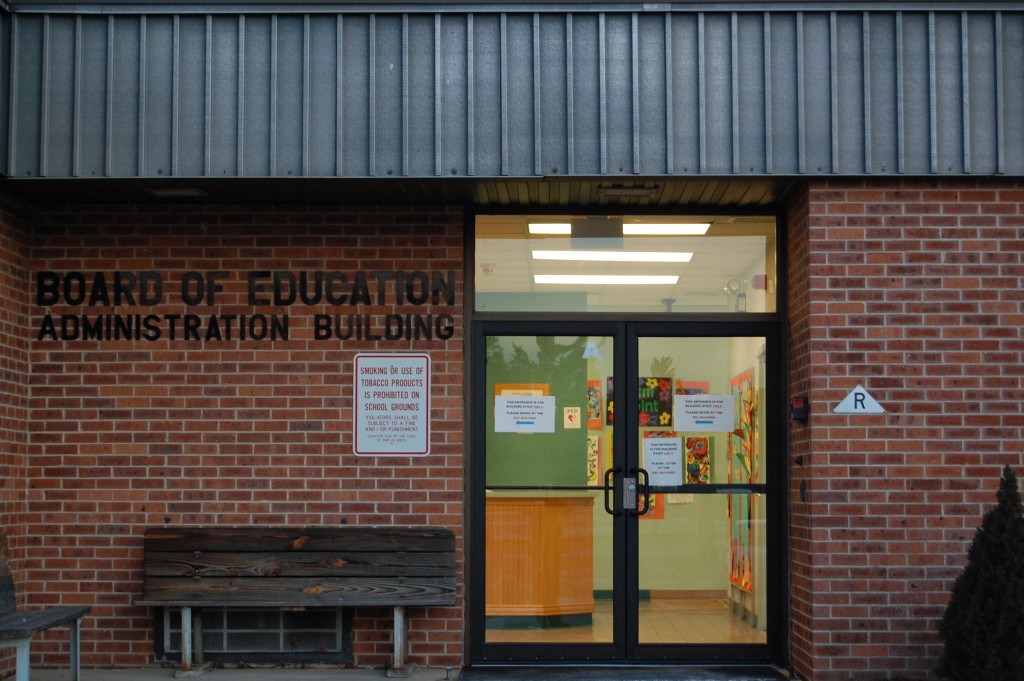Brick’s school budget will raise taxes for residents while rising employee healthcare costs and needed upgrades to facilities led to a funding crunch that forced officials to eliminate 44 positions across the district. Meanwhile, political wrangling in Trenton between Gov. Phil Murphy and Senate President Steven Sweeney have left state funding for districts like Brick a question that may go unanswered for another two months.
The district’s $155,157,423 operating budget for the 2018-19 school year was approved unanimously by the seven-member Board of Education at a meeting Thursday night, following hours of budgetary discussion between board members, officials and members of the public. The budget will be supported by a $109,258,129 tax levy, about $4.4 million higher than the current year, which will amount to a tax increase of $138 on a home valued at $295,000.
Meanwhile, the budget crunch consumed 44 positions, all of which will be eliminated through attrition, according to Acting Superintendent Dennis Filippone. The district, however, will create nine new positions. The jobs being eliminated include one assistant principal, 17 teachers, 23 paraprofessionals (commonly known as teachers’ aides) a clerical position and custodial positions. The reduction in positions will be relatively evenly spread throughout the district.
|
|
Filippone thanked board members for their “courage it takes to present to the public a budget with a significant tax increase,” and said he signed a document guaranteeing to the state that students will receive their constitutionally-mandated “thorough and efficient” education after careful consideration to class sizes, staffing levels and where funding should be directed.
“Prior to signing that document, I did take pause,” Filippone said. “Because even with all of what we’re going to present to you tonight, there still is so much that needs to be done. I still believe that this budget is a very fair one – and not only fair to the public, but fair to the students. Our number one priority is the students.”
James Edwards, the district’s business administrator, said employee benefit costs are expected to rise by $1,828,395 – mainly medical insurance – and contractual salary increases add up to $670,150. The district will also spend an extra $620,016 for out-of-district placements for special education students as private school tuition is on the rise.
Salaries and benefits make up a total of 77 percent of the budget.
“That number is a little better than in the past – it used to be over 80 percent – and we’re heading in the right direction,” said Filippone.
The district will add nine positions, including an English Language Learners teacher (who will teach students whose first language is not English) to be shared between the district’s two high schools, an additional nurse at Veterans Memorial Elementary School, an HVAC mechanic, a security and communications technology specialist, two academic coaches for the high schools and two armed security guards to cover the elementary schools.
The budget also includes $4,421,613 in capital improvement projects, including a new roof for Drum Point Elementary, a new auditorium HVAC system at Veterans Memorial Middle School, door replacements at the two high schools, Vets Middle and Midstreams Elementary, plus concrete and blacktop repairs at several schools.
“It is not a budget with any extras,” Filippone stressed, saying the district turned down a multitude of requests for new personnel and upgrades from department heads and supervisors, including a second behaviorist for the district. As it currently stands, one behaviorist covers about 2,200 students district-wide. More routine items include custodial equipment, a 25-passenger bus and a backhoe to remove snow, which will reduce the district’s snow removal bills.
The reduction in staff prompted criticism from one resident.
“Half the people that you’re not replacing are at the bottom level of the pay scale,” said Vic Fanelli. “You probably could have gotten rid of one administrator and kept six of those people.”
Filippone said the cuts were directed where they were required.
“We realized we were overstaffed in our paraprofessional line in October, when we started talking about the budget,” he said. “We knew we had an abundance of paraprofessionals and this is the number we ended up with. We didn’t start at the bottom and say, ‘let’s start with the low-hanging fruit and work our way up.’”
Brick is in the bottom 3 percent of per-student administrator costs compared to 102 districts in a similar socioeconomic group, according to state figures.
Ultimately, state funding is still up in the air. Brick receives $14,213,519 in what is known as “adjustment aid.” That funding is the target of Sweeney, who has been arguing in favor of eliminating it altogether in recent years.
“The state, under the funding formula, thinks we are a wealthy community,” said Filippone.
Essentially, under the formula, the state considers Brick’s school taxes too low, but instead of forcing cuts or immense tax hikes, has provided the aid, which tax increases were supposed to be phased in over the course of five years, beginning in 2009. But the aid was maintained throughout the years of the administration of Gov. Chris Christie, and was included in Murphy’s first state budget proposal – one which Sweeney has said will be reconsidered by the legislature.
A funding cut – even a relatively small percentage of the $14 million in adjustment aid, much less the entire amount – could force additional cuts.
“We will have to wait and see, because we don’t know if we’re going to lose a million dollars in state funding,” said Edwards.
“We need to focus our efforts on Trenton,” Edwards said, adding that even if Brick had raised its taxes to the maximum amount allowed by law every year since 2009, it still would not equal the amount of adjustment aid the state provides.
“The township is going up 1.9 [percent], you’re going up 4.3 [percent] in taxes,” said resident George Scott. “This is not an easy pill to swallow.”
The district will also ask voters to approve a $12.5 million bond referendum in the fall, which would be put toward security improvements and be paid off over 25 years (see separate story).













